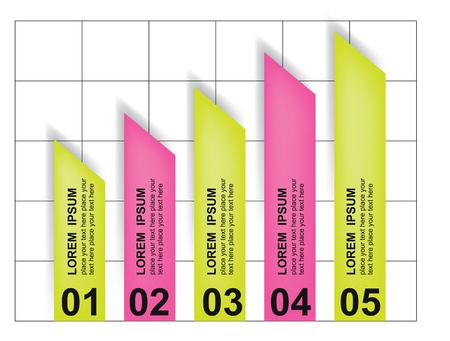Understanding Oracle Cards: An Overview
When considering your next career move, many in the UK are turning to alternative tools for guidance and insight. One such tool is the oracle card, which has steadily grown in popularity across British communities seeking both personal and professional clarity. But what exactly are oracle cards? Unlike tarot cards, which follow a structured system rooted in centuries-old tradition, oracle cards are more flexible in their themes and interpretations. Their origins can be traced back to various forms of European cartomancy, but they have evolved to suit a wide range of spiritual and self-development purposes, especially within contemporary UK culture.
Oracle cards typically feature imagery and messages designed to prompt reflection and intuition, rather than predict a fixed future. In contrast to tarot’s 78-card structure and established symbolism, oracle decks may contain any number of cards and cover topics from career guidance to well-being. In the UK, this adaptability has made them particularly appealing for those seeking nuanced perspectives during times of career transition. Whether found at local metaphysical shops in London or discussed at wellness events in Manchester, oracle cards offer a distinctly British blend of tradition and modern sensibility, making them a valuable resource for anyone navigating the complexities of today’s job market.
2. Cultural Perceptions of Oracle Cards in the UK
In the context of making career decisions, understanding how oracle cards are viewed within British society is crucial. The UKs cultural landscape is shaped by its historical scepticism towards non-traditional guidance tools, but recent years have seen a gradual shift. Analysing British societal attitudes reveals a complex interplay between lingering misconceptions and increasing acceptance.
Common Misconceptions About Oracle Cards
Oracle cards have often been misunderstood in the UK, sometimes dismissed as frivolous or conflated with fortune-telling and superstition. Many people, especially in traditional professional circles, may associate their use with irrationality or a lack of seriousness about one’s career. These assumptions can create hesitation for individuals considering incorporating oracle card readings into their career planning process.
Key Misconceptions vs. Reality
| Misconception | Reality |
|---|---|
| Oracle cards are only for spiritualists or mystics | People from various backgrounds use them as reflective and decision-making tools |
| They predict the future with certainty | They offer perspective, clarity, and self-reflection rather than definitive answers |
| Their use is incompatible with rational career planning | They can complement analytical approaches by unlocking intuition and creative thinking |
Growing Acceptance and Integration
The UK has witnessed an evolving attitude towards holistic and alternative practices in recent years. As mental health and well-being become central to career development, more professionals are open to methods that support self-awareness and personal growth—including oracle cards. This growing acceptance is evident in the rising number of coaching practices and workshops that integrate oracle cards with conventional career counselling techniques.
Cultural Shifts Supporting Acceptance
- An emphasis on work-life balance encourages exploration of new decision-making tools.
- Younger generations tend to be more open-minded about combining logic and intuition.
- Mainstream media increasingly features stories about successful professionals using alternative guidance methods.
This transformation is not without its challenges; scepticism remains among some sectors. However, as more Britons experience positive outcomes, oracle cards are gradually gaining recognition as a legitimate supplement to traditional career strategy—blending British pragmatism with a growing appetite for holistic self-discovery.

3. Using Oracle Cards for Career Guidance
In the UK, oracle cards have gained traction as a unique and insightful tool for navigating career challenges and opportunities. Individuals from various professional backgrounds are increasingly turning to these intuitive decks to seek clarity and direction during pivotal career moments. The process often begins with setting an intention—such as exploring new job prospects or resolving workplace dilemmas—before shuffling and drawing cards that offer symbolic guidance. Many Britons use oracle cards privately at home, while others participate in group sessions or workshops led by experienced readers who understand the nuances of the UK’s employment landscape.
For those facing uncertainty or feeling ‘stuck’ in their careers, oracle cards serve as a reflective aid to uncover hidden motivations, personal strengths, and potential obstacles. By prompting self-inquiry, the cards help users identify patterns or beliefs that may be holding them back from advancement or satisfaction at work. This introspective approach aligns well with the British cultural emphasis on thoughtful decision-making and measured risk-taking, allowing individuals to consider their options without undue pressure.
When it comes to making concrete career decisions—such as accepting a new role, pursuing further education, or embarking on self-employment—oracle cards can support the process by highlighting aspects that merit closer attention. Rather than providing definitive answers, these tools encourage users to weigh their choices through fresh perspectives and inner wisdom. In this way, oracle cards complement more conventional methods of career planning in the UK, offering an alternative route to confidence and clarity amid the complexities of modern working life.
4. Integrating Oracle Cards into Professional Development
In the dynamic landscape of British workplaces, personal and professional development are increasingly intertwined. Oracle cards, while traditionally used for introspection, can become a valuable tool for professionals seeking clarity and direction in their career progression. The UK’s diverse corporate culture encourages innovative approaches to self-improvement, and incorporating oracle cards is gaining traction as a reflective practice rather than superstition.
Practical Applications in Career Development
British professionals can weave oracle card readings into their development strategies in several pragmatic ways. Here are some common methods:
| Application | Description | UK Workplace Example |
|---|---|---|
| Goal Setting Sessions | Draw cards to prompt reflection on short- and long-term objectives. | A London marketing manager uses a card spread before quarterly reviews to clarify aspirations. |
| Decision-Making Aid | Use cards to explore options or identify hidden factors when facing tough choices. | An IT consultant in Manchester consults oracle cards when weighing job offers. |
| Team Building Workshops | Facilitate group sessions where team members draw cards and share insights to foster empathy. | An HR officer in Bristol integrates oracle cards during staff retreats for open dialogue. |
| Personal Reflection | Individuals use daily or weekly draws to reflect on workplace challenges and strengths. | A teacher in Edinburgh pulls a card each Sunday evening to prepare mentally for the week ahead. |
The British Approach: Discretion and Professionalism
It’s important to consider the cultural nuances within UK workplaces. While open-mindedness is growing, discretion remains key. Most professionals prefer using oracle cards privately or within trusted groups. Incorporating these practices should always respect organisational norms, ensuring they supplement—rather than replace—evidence-based career planning tools.
Tips for Seamless Integration
- Start with personal experimentation before sharing with colleagues.
- Combine oracle readings with conventional tools like SWOT analysis or performance reviews.
- If introducing to teams, frame sessions as creative reflection exercises rather than spiritual rituals.
Summary
The measured integration of oracle cards into professional development aligns well with the UK’s value of thoughtful self-improvement. When approached with sensitivity, this practice can offer fresh perspectives, support resilience, and foster a culture of mindful decision-making across British workplaces.
5. Best Practices and Ethical Considerations
When exploring the use of oracle cards for career planning in the UK, it is crucial to approach the practice responsibly and ethically. Understanding best practices not only ensures personal integrity but also respects cultural norms and legal requirements unique to the UK context.
Responsible Use of Oracle Cards
Oracle cards should be regarded as a reflective tool rather than a definitive predictor of career success or direction. For UK professionals, this means using readings to gain insight into personal motivations, potential opportunities, and underlying concerns—while also balancing these insights with practical research and professional advice. It is important to avoid over-reliance on card interpretations and instead use them as a supplementary resource during your decision-making process.
Privacy Concerns
Confidentiality is paramount when incorporating oracle cards into career planning, especially in workplace settings or group sessions. Practitioners must ensure that all personal information shared during readings remains private and secure, in line with the UKs GDPR (General Data Protection Regulation) standards. This includes obtaining explicit consent before discussing sensitive topics and refraining from recording or sharing details without permission.
Ethical Guidelines for Career Planning
Ethics play a vital role in responsible card reading. In the UK, there is a strong emphasis on transparency—readers should clearly state that oracle cards are an interpretive tool and not a replacement for professional career counselling or legal advice. Additionally, practitioners must avoid making guarantees about future job outcomes or influencing clients towards specific decisions based solely on card results.
Cultural Sensitivity
The diversity of British workplaces requires sensitivity to varying beliefs about spirituality and guidance tools. Ensure that participation is voluntary and that respect is given to individuals who may prefer traditional career planning methods over spiritual practices like oracle readings.
Summary of Best Practices
To ethically employ oracle cards in your career journey within the UK: use cards as one element among many in your planning toolkit, safeguard all personal data, communicate openly about the nature of readings, and respect individual boundaries. By following these guidelines, you can responsibly integrate oracle cards into your next career move while upholding both legal standards and cultural expectations.
6. Available Resources and Local Communities
For those in the UK looking to integrate oracle cards into their career decision-making process, there are a wealth of local resources and vibrant communities to tap into. These resources not only provide guidance but also foster connections with like-minded individuals navigating similar professional crossroads.
UK-Based Workshops and Courses
Across the UK, numerous workshops cater specifically to the use of oracle cards for personal and professional growth. Cities such as London, Manchester, and Edinburgh regularly host in-person and virtual events led by experienced practitioners. These sessions often cover everything from foundational card reading techniques to advanced applications for career clarity. Institutions like The College of Psychic Studies in London or holistic centres in Bristol frequently run tailored workshops that blend British perspectives with global best practices.
Community Groups and Networking Opportunities
Beyond formal workshops, the UK boasts a strong network of community groups devoted to oracle cards and intuitive development. Platforms such as Meetup feature active groups where members share experiences, exchange readings, and discuss strategies for applying oracle insights to workplace challenges. These gatherings—whether in cosy cafés or online forums—offer invaluable support and encouragement, especially when considering pivotal career moves.
Online Resources Tailored to UK Professionals
For those preferring self-guided learning, several UK-based websites and social media communities offer resources tailored to local contexts. Blogs authored by British card readers often address unique aspects of the UK job market, while YouTube channels run by homegrown experts provide video tutorials relevant to both entry-level professionals and seasoned executives contemplating change.
Finding Your Tribe: The Value of Local Connection
Engaging with local practitioners and peers enables deeper understanding of how cultural nuances influence both oracle card interpretations and career dynamics in the UK. Whether you are attending a workshop in Birmingham or joining an online discussion based in Glasgow, these connections ground your journey in shared experience, making each step towards your next role more confident and informed.

